The ability to sleep anywhere is a game changer for traveling. Sleep is the most elusive of what I consider the three pillars of good physical health:
Diet, Activity, & Sleep.
Sleep is forever in competition with time (Our most valuable resource!) This is especially true when traveling. There is too much to do in the day! Too many exciting new experiences… To many things to wonder at… Everyday on travel feels like starting early and finishing late, I wake up early to attack the day only to realize I only got four and a half hours of sleep.
A good night’s sleep directly impacts your mood, energy levels, and cognitive function. With sleep deprivation, the joy of travel will quickly turn into a struggle with fatigue and irritability. Those beautiful new wonders will become new frustrations. While the recommended seven to nine hours of sleep per night might sound like a distant dream when you’re on the move, prioritizing rest will significantly improve your experience when traveling. In this guide, we’ll unveil the best tools and techniques to help you sleep anywhere, ensuring that your journeys are as restful as they are exhilarating.
Why is sleep important?
Sleep is a cornerstone of our overall health and well-being!! Let’s explore why getting enough quality sleep is crucial, especially when we’re on the move.
Not getting enough sleep
Sleep deprivation has serious consequences on our physical and mental health. When we don’t get enough rest, our bodies struggle to function optimally.
Lack of sleep leads to decreased cognitive function, impaired decision-making, and slower reaction times. This is particularly dangerous when traveling, as we need to be alert and aware of our surroundings.
Reading that map upside down? Can’t remember what we planned from yesterday? Nodding off on the train? You may need some more sleep.
We all know chronic sleep deprivation has been linked to various health issues, including weakened immune systems, increased risk of heart disease, and weight gain. This means a higher likelihood of falling ill during your trip. And sick on travel is a horrible feeling. Plus you feel like patent zero spreading illness across your new location.
Even worse… , insufficient sleep affects our emotional well-being, leading to mood swings, irritability, and burnout. This will significantly impact the enjoyment of your travel. You ever find yourself arguing with your travel mate on vacation? you both may just need a nap.
Check out our article on balancing sleep and workouts while traveling.
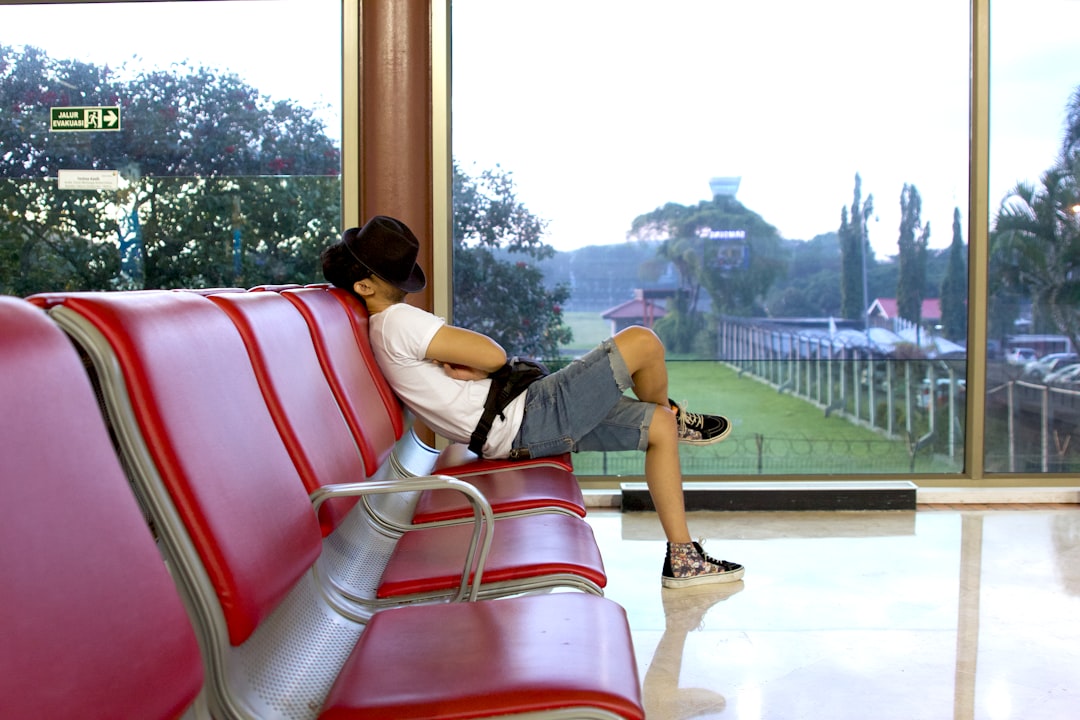
How much sleep do we need
We are all different, and the amount of sleep we need varies depending on age, lifestyle, and individual factors. However, there are general guidelines to help ensure we’re getting enough rest.
For adults its recommended to have 7-9 hours of sleep per night. This range allows for individual variations while providing a benchmark for optimal health and functioning. I aim for 7.5 hours a night. Honestly though, I’m closer to 6.5 hours a night so I have room for improvement myself.
Teenagers and young adults may require slightly more sleep, typically 8-10 hours, to support their developing bodies and minds. On the other hand, older adults might function well with 7-8 hours of sleep.
It’s important to note that these are averages. Some individuals may need more or less sleep to feel fully rested. Pay attention to your body’s signals and adjust your sleep schedule accordingly. What works for your travel mates may not work for you.
The benefits of proper sleep
Getting adequate sleep offers numerous benefits to enhance your travel and overall quality of life.
Proper sleep improves cognitive function. It enhances memory, creativity, and problem-solving skills. This is particularly valuable when navigating new environments or dealing with unexpected situations during your travels. Sleep will keep you alert and appreciating every moment. Sleep will help you to not get lost in a new place or lost within your own mind!
Sleep also plays a crucial role in physical recovery and immune system function. By prioritizing rest, you’re better equipped to handle the physical demands of travel. And you are less likely to fall ill while exploring new destinations. Let your legs rest after walking around town all day. Those muscles heal themselves while you are sleeping. If you skip out on sufficient sleep, you will find your legs sore so many days longer.
Good sleep contributes to better mood regulation. And sleep increases resilience to stress. This will help you stay positive and adaptable, even when facing travel-related challenges. Yeah, are you arguing with your travel mate again? It may be lack of sleep annoying you much more so than their quirks. Make a point to get a good nights rest.
How to find time when traveling and sleep anywhere
Maintaining a healthy sleep schedule while on the go is challenging. But it’s essential for making the most of your time on the road. Let’s explore strategies to prioritize rest during your travels.
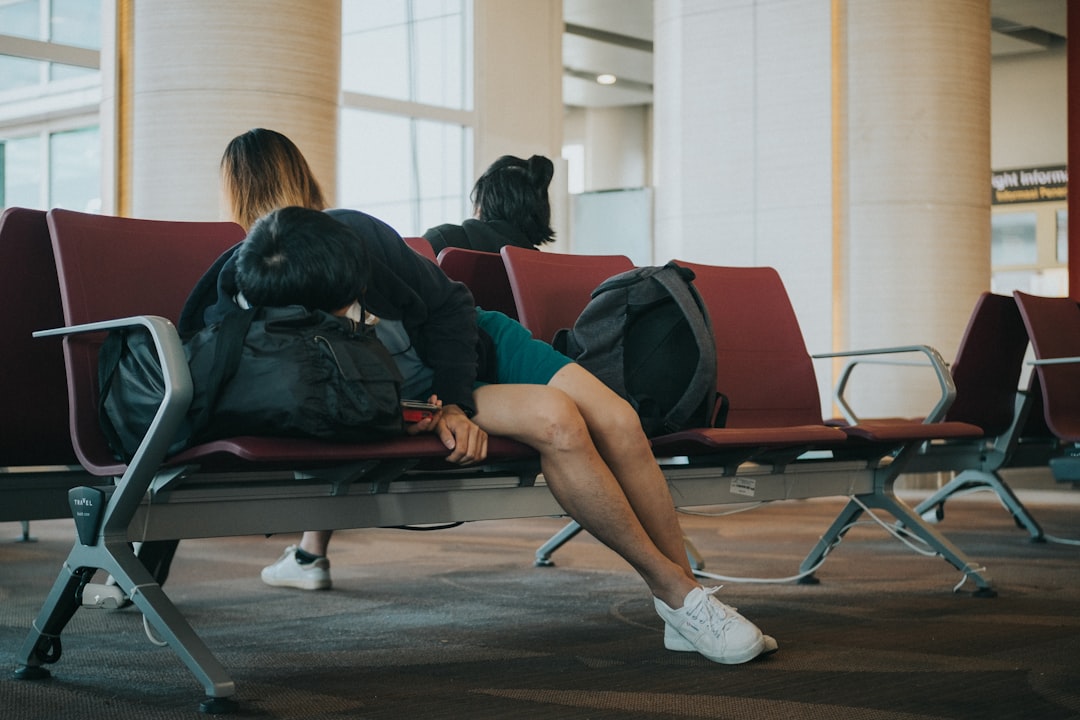
How not enough sleep can affect your mood
Sleep deprivation has a significant impact on your emotional state. It can turn an exciting journey into a frustrating ordeal.
Long lines annoying you? Interruptions from far away back home making you stressed? Random delays got you fuming? When we’re sleep-deprived, our ability to regulate emotions diminishes. This leads to increased irritability, mood swings, and a lower threshold for stress. When we often face new and challenging situations during travel, these effects are particularly problematic. There is already enough stress in travel.
Lack of sleep also dampens our enthusiasm and ability to fully engage with new experiences. You might find yourself less patient with cultural differences or less excited about exploring local attractions. Sleep leaves our minds refreshed and open to new experiences.
Moreover, sleep deprivation exacerbates feelings of homesickness or travel anxiety, making it harder to adapt to new environments and enjoy your trip to the fullest.
Best Sleep Tracking Apps to help you regulate sleep anywhere
Sleep tracking apps are valuable tools for maintaining a healthy sleep schedule. These apps monitor your sleep patterns and make adjustments as needed.
Sleep tracking apps typically use your smartphone’s sensors to monitor your movements and sounds during the night. Some also connect to wearable devices such as smart watches, rings, or other attachments. This data is then analyzed to provide insights into your sleep quality, duration, and cycles. Check out this article for a breakdown of many different wearables: Sleep Tracking Technology: Apps, Wearables, and Smart Devices Guide
Many apps offer features like smart alarms that wake you up during lighter sleep phases. The smart alarms make it easier to start your day feeling refreshed. Some also provide relaxation techniques or white noise to help you fall asleep in unfamiliar environments.
Popular sleep tracking apps include Sleep Cycle, Pillow, and Sleep as Android. Each offers unique features, so it’s worth exploring a few to find the one that best suits your needs.
Here’s a brief overview of three popular apps:
- Sleep Cycle: Known for its smart alarm feature and detailed sleep analysis. It’s user-friendly and offers a clean interface.
- Pillow: Provides comprehensive sleep data and integrates well with Apple Health. It also offers a power nap mode, perfect for quick refreshes during travel.
- Sleep as Android: Packed with features including sleep tracking and smart alarms. It even includes CAPTCHA wake-up tasks to ensure you’re truly awake.
Consider factors like battery usage, ease of use, and compatibility with your device when choosing. Remember, the best app isn’t the one with the most features. The best app is the one you’ll consistently use during your travels.
How to sleep on a plane and fall asleep anywhere
Sleeping on a plane is a challenge. With the right strategies and tools, you will arrive at your destination feeling more rested and ready to explore.
Why are planes so uncomfortable
Planes are notoriously uncomfortable for sleeping. This is due to a combination of factors that disrupt our natural sleep patterns.
The confined space of airplane seats limits our ability to find a comfortable sleeping position. This is especially true in economy class, where legroom and seat recline are often minimal. I am 6-ft 1-in tall and do not fit in any coach airplane seat. At least not in the USA where they seem to make the seats more cramped with each new plane redesign. And the recline on plane seats doesn’t really improve our sleep posture in any way.
The air on planes is so dry and sterile tasting (but we know its not that clean!). Cabin pressure and low humidity lead to dehydration. The dry air also causes nasal irritation and congestion, further disrupting sleep.
Noise from the engines, other passengers, and frequent announcements make it difficult to relax and drift off. Ever fallen asleep in the aisle seat only to get smacked awake by the beverage cart? Additionally, the changing light conditions and time zones confuse our internal body clock.
Comfort in the Skies: Neck Pillows
Neck pillows are a popular solution for improving sleep comfort during air travel. These U-shaped cushions provide crucial support for your head and neck to help you sleep anywhere.
A good neck pillow helps maintain proper alignment of your spine while sleeping upright. This prevents the dreaded “head bob” that often jolts us awake and causes neck pain after long flights.
When choosing a neck pillow, consider factors like material (memory foam, inflatable, or microbead), size, and portability. Some newer designs offer additional features like attachments to secure the pillow to your seat.
Remember, the best neck pillow is one that suits your individual needs and sleeping style. It might take some trial and error to find your perfect travel companion.
Reviews of Top Neck Pillow Brands to help you sleep anywhere
When it comes to neck pillows, there are many unique varieties. Here’s a quick comparison of some top brands:
- Trtl Pillow: Known for its unique scarf-like design. It offers excellent neck support in a compact package.
- Cabeau Evolution Classic: Features memory foam and a flat back design for added comfort against airplane seats.
- J-Pillow: With its J-shape, this pillow provides support for both your neck and chin, preventing your head from falling forward.
Consider factors like comfort, portability, and ease of cleaning when making your choice. Reading user reviews also provides valuable insights into real-world performance.

trtl Pillow – Scientifically Proven, Super Soft Neck Support Travel Pillow for Sleeping

Cabeau Neck Pillow for Airplane Travel – Evolution Classic – Memory Foam U Shaped Design

J-Pillow Travel Pillow | Travel Pillows for Airplanes | British Invention of The Year
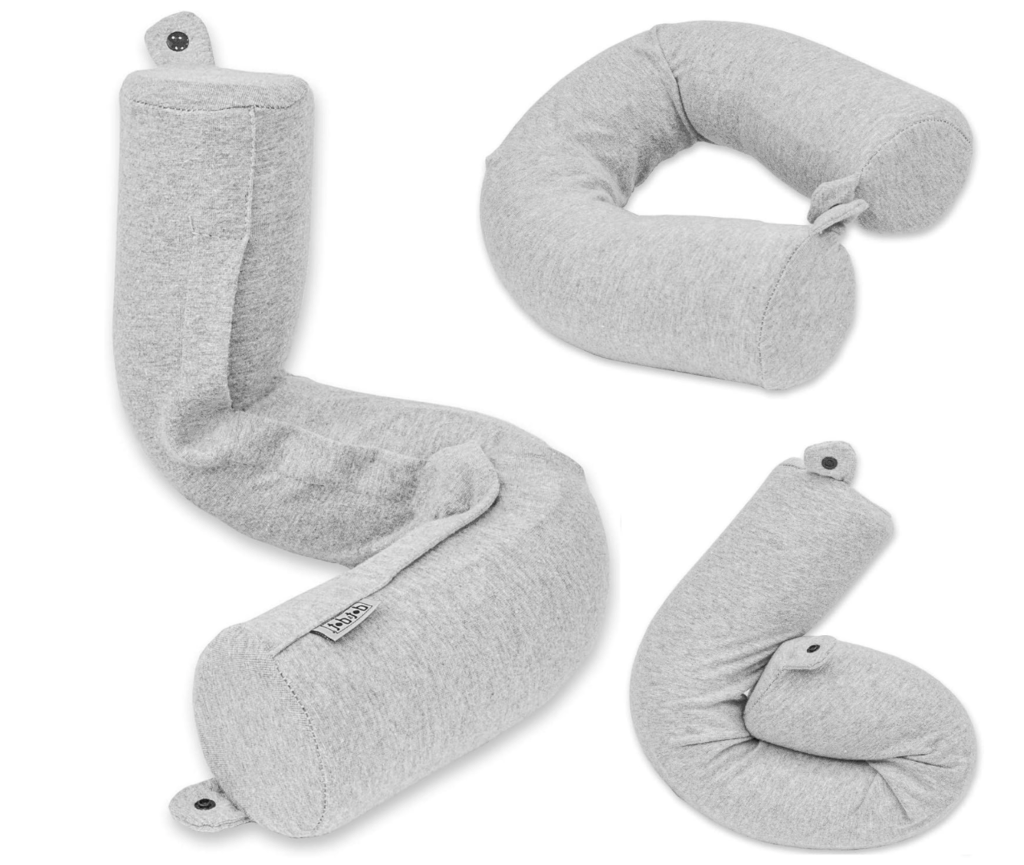
Dot&Dot Twist Memory Foam Travel Pillow for Airplanes
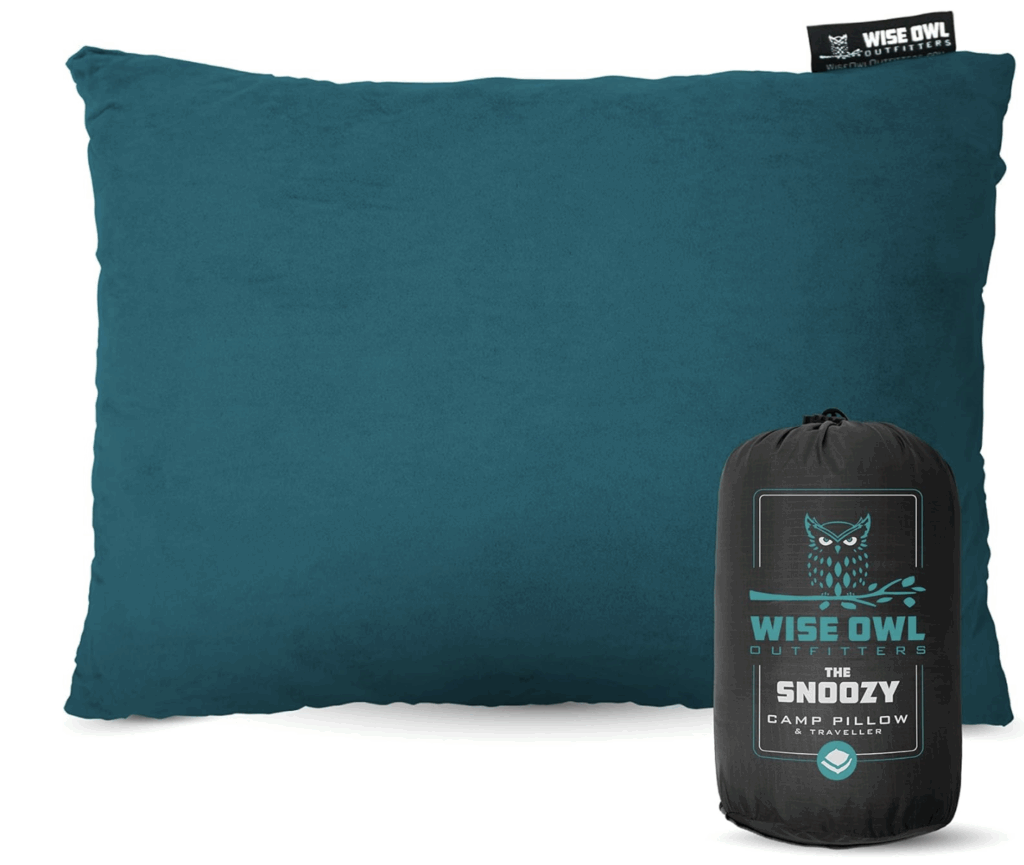
Wise Owl Outfitters Camping Pillow – Memory Foam Travel Pillow
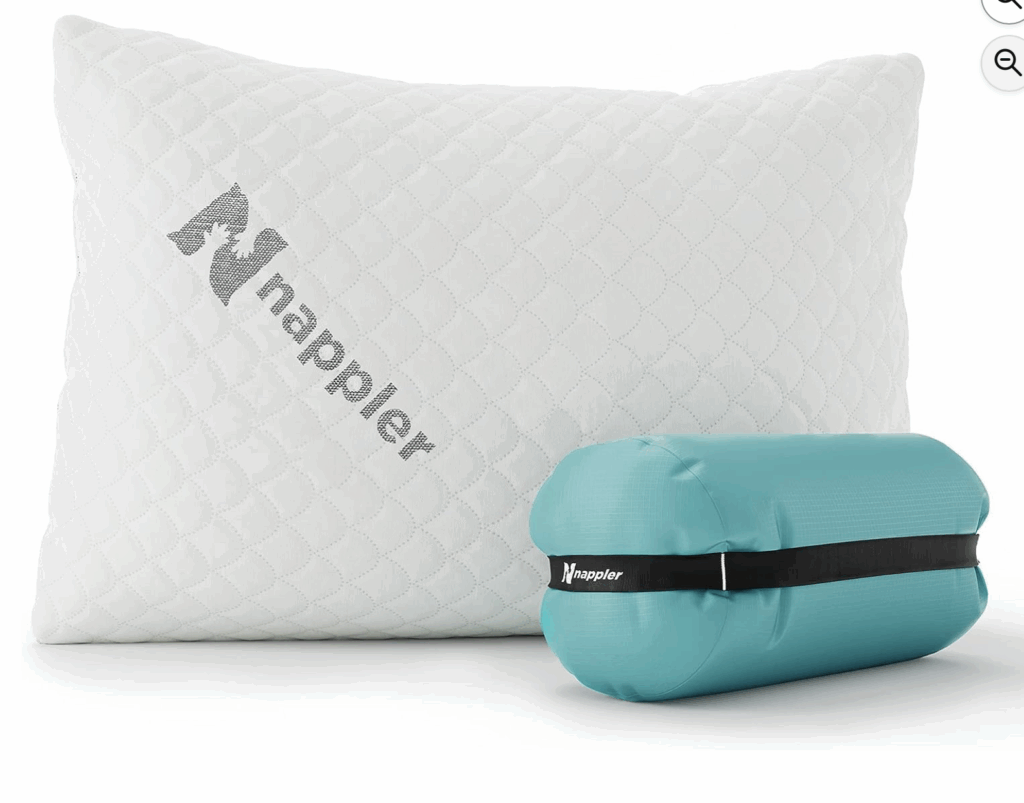
Small Shredded Memory Foam Pillow for Travel and Camping
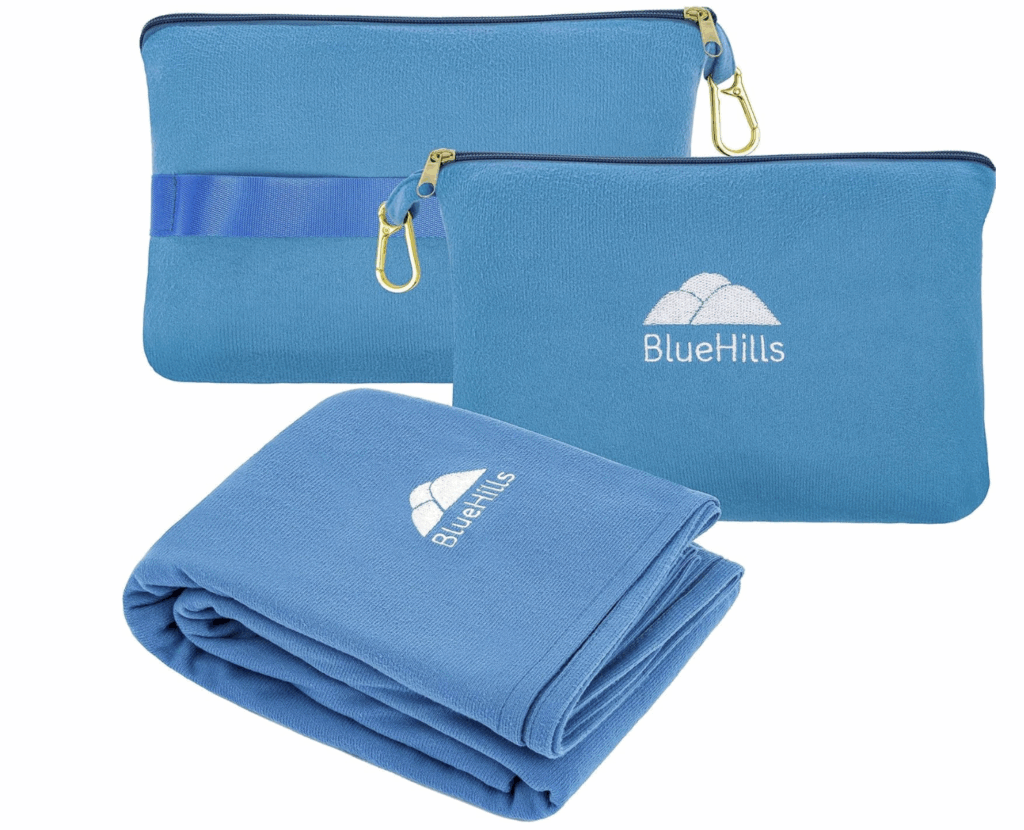
BlueHills Travel Blanket Pillow Compact Lightweight Pocket Size
Relaxation Techniques for Flights
Mastering relaxation techniques will significantly improve your ability to sleep anywhere. Here are some methods to try:
- Deep breathing exercises: Practice slow, deep breaths to calm your mind and body. Try the 4-7-8 technique: inhale for 4 counts, hold for 7, exhale for 8.
- Progressive muscle relaxation: Systematically tense and then relax different muscle groups. Start from your toes and moving up to your head. Trust me… this will feel amazing even in the most uncomfortable seat.
- Visualization: Close your eyes, and imagine a peaceful, relaxing scene in vivid detail. This helps distract your mind from the uncomfortable surroundings. I like to think back to the best most relaxing sleep I had in the past week.
- Mindfulness meditation: Focus on your breath and take in the present moment, acknowledging thoughts and sensations without judgment. This reduces anxiety and promotes relaxation.
Remember, these techniques may take some practice. Don’t get discouraged if they don’t work immediately. Keep trying and find what works best for you 😴
Tools for Helping You Sleep Anywhere
Having the right tools makes a difference when trying to sleep in challenging environments. Let’s explore some essential sleep aids for travelers.
Ear Plugs: The Sound of Silence
Ear plugs are a simple effective tool for creating a quiet sleep environment, no matter where you find yourself.
These small devices work by blocking out ambient noise. This is particularly helpful in noisy hotel rooms, hostels, or when sleeping on public transportation. If you are trying to sleep in a room crowded with other people, ear plugs make all the difference. By reducing auditory distractions, ear plugs help you fall asleep faster and enjoy more restful sleep.
When choosing ear plugs, consider factors like noise reduction rating (NRR), comfort, and durability. Foam ear plugs are popular for their affordability and ease of use, while silicone or wax options may provide a better seal for some users.
Remember to insert ear plugs correctly for maximum effectiveness. Gently roll foam plugs into a thin cylinder before inserting, and allow them to expand in your ear canal.
Eye Masks: Blocking Out Light to sleep anywhere
Eye masks are amazing at creating darkness, which is crucial for promoting the production of melatonin, our sleep hormone.
They are particularly useful when dealing with time zone changes or in environments where you can’t control the light, such as on planes or in hotel rooms.
When selecting an eye mask, look for one that fits comfortably without putting pressure on your eyes. Some masks come with contoured designs that allow your eyes to move freely during REM sleep.
Consider features like adjustable straps, light-blocking effectiveness, and breathable materials. Some masks even come with built-in headphones or cooling/heating elements for added comfort.
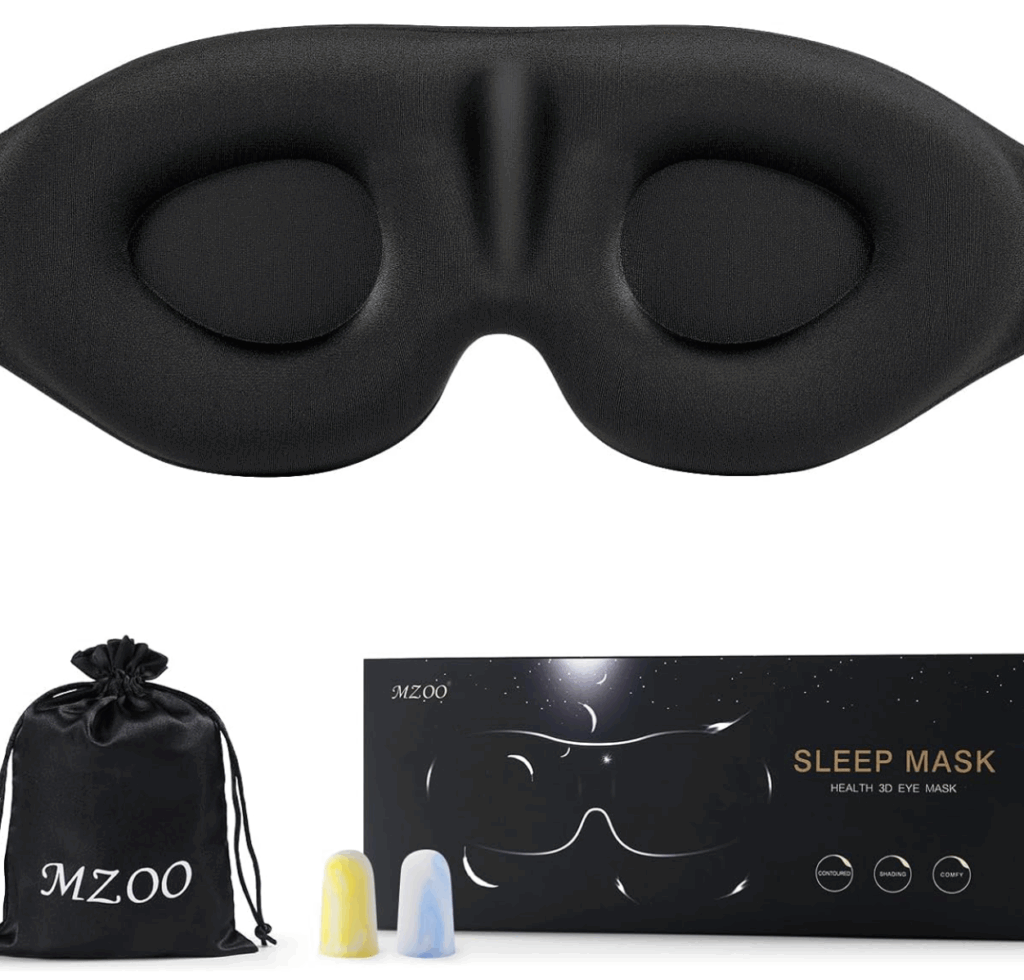
MZOO Sleep Eye Mask for Side Sleeper Men Women, Zero Eye Pressure 3D Sleeping Mask
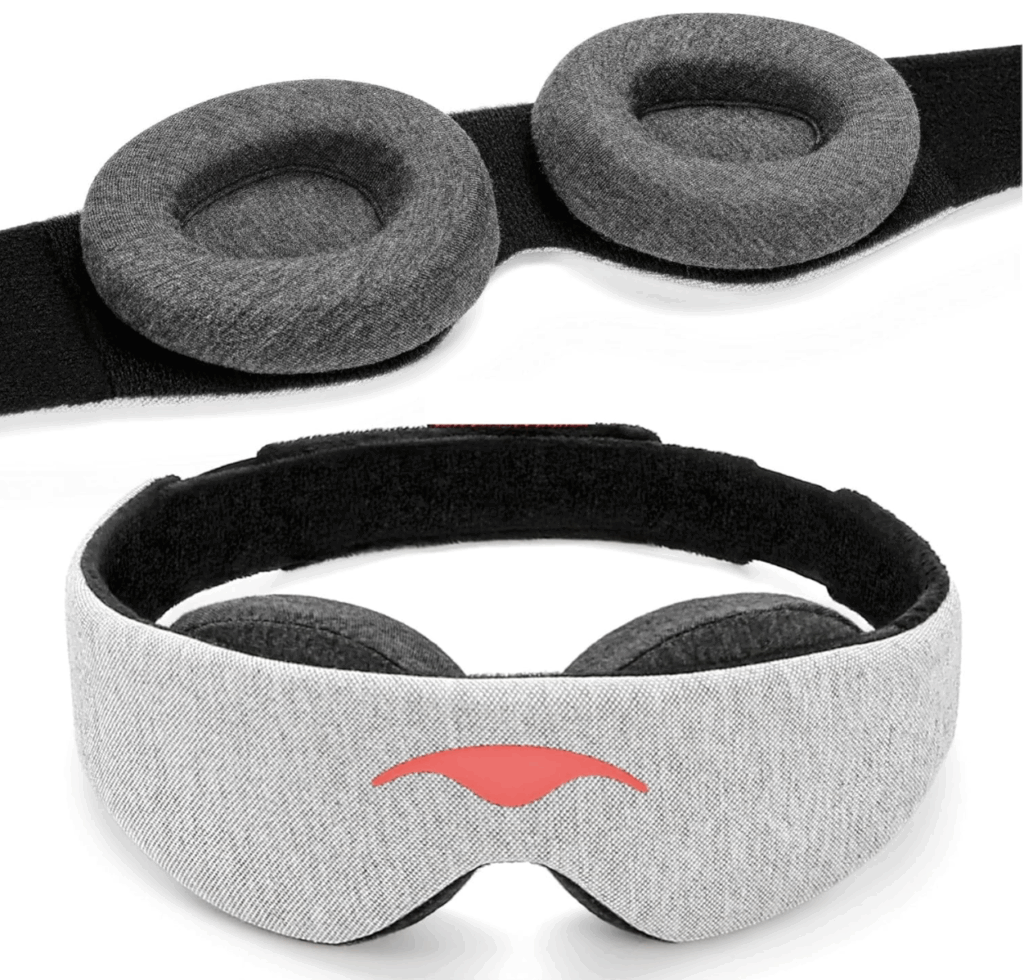
Manta Sleep Mask – 100% Light Blocking, Adjustable Sleeping Mask with Detachable Eye Cups
Sleeping Pills: A Last Resort
While sleeping pills may be effective for short-term sleep issues, they should be considered a last resort, especially when traveling.
Over-the-counter sleep aids often contain antihistamines, which leave you feeling groggy the next day. This residual drowsiness will interfere with your travel activities and potentially compromise your safety in unfamiliar environments.
Its nice to be knocked out during the flight, but no so nice to be a lost groggy mess when navigating arrival in a new town.
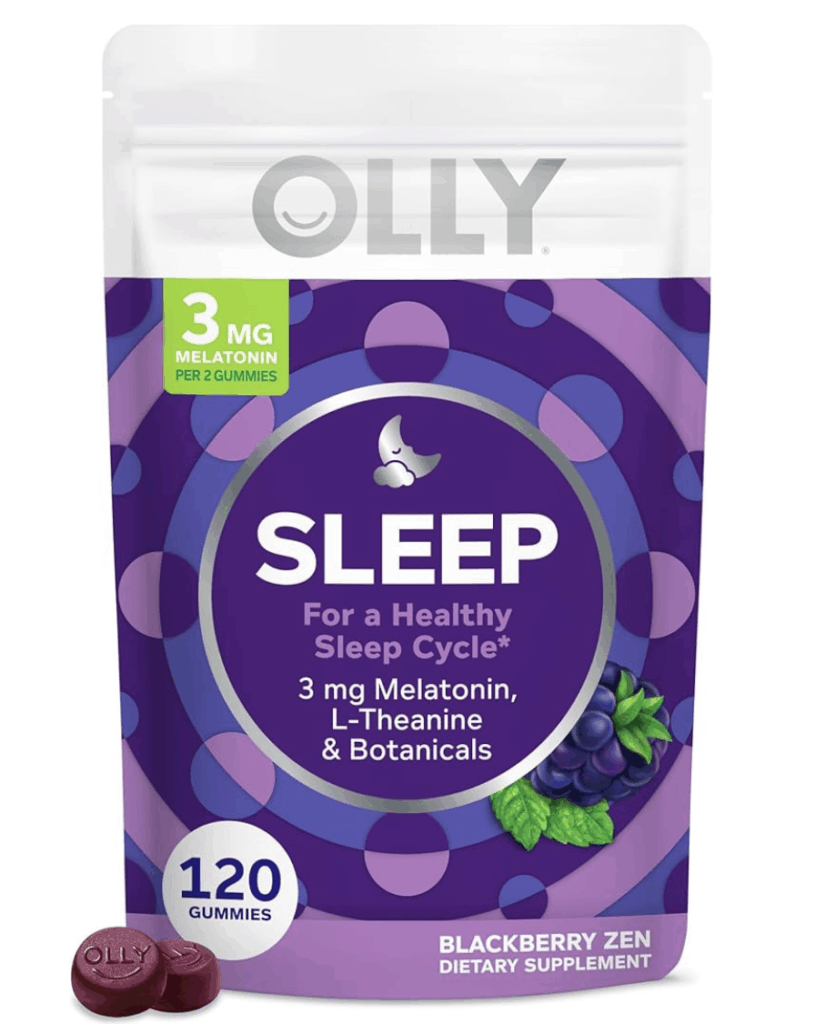
Olly Sleep Gummy, 3 mg Melatonin, L-Theanine, Chamomile, and Lemon Balm Extracts
Prescription sleep medications are more potent. They also carry risks of side effects and dependency. They may also interfere with your natural sleep cycles. And can potentially make it harder to adjust to new time zones.
If you do choose to use sleeping pills, always consult with a healthcare professional first.



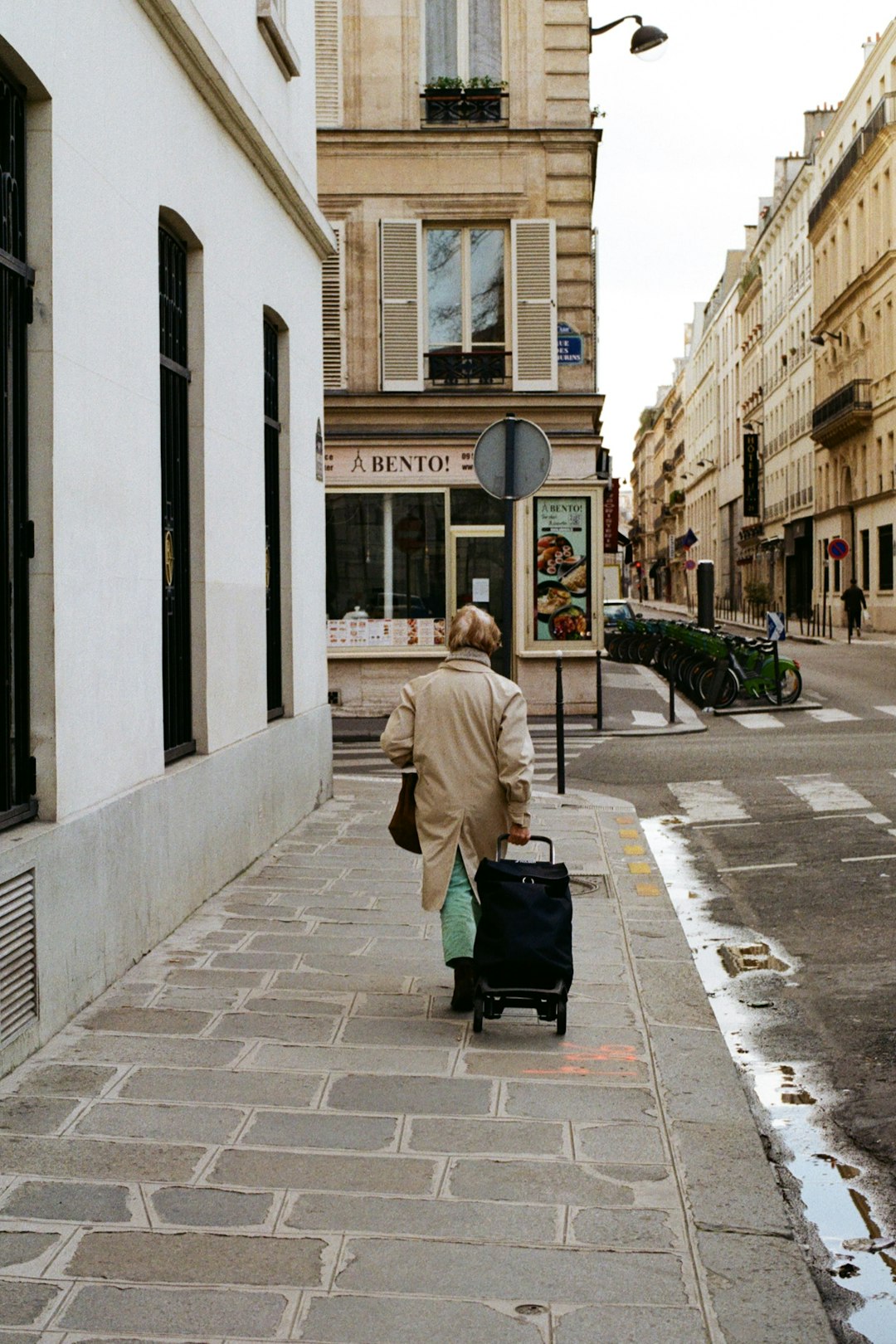
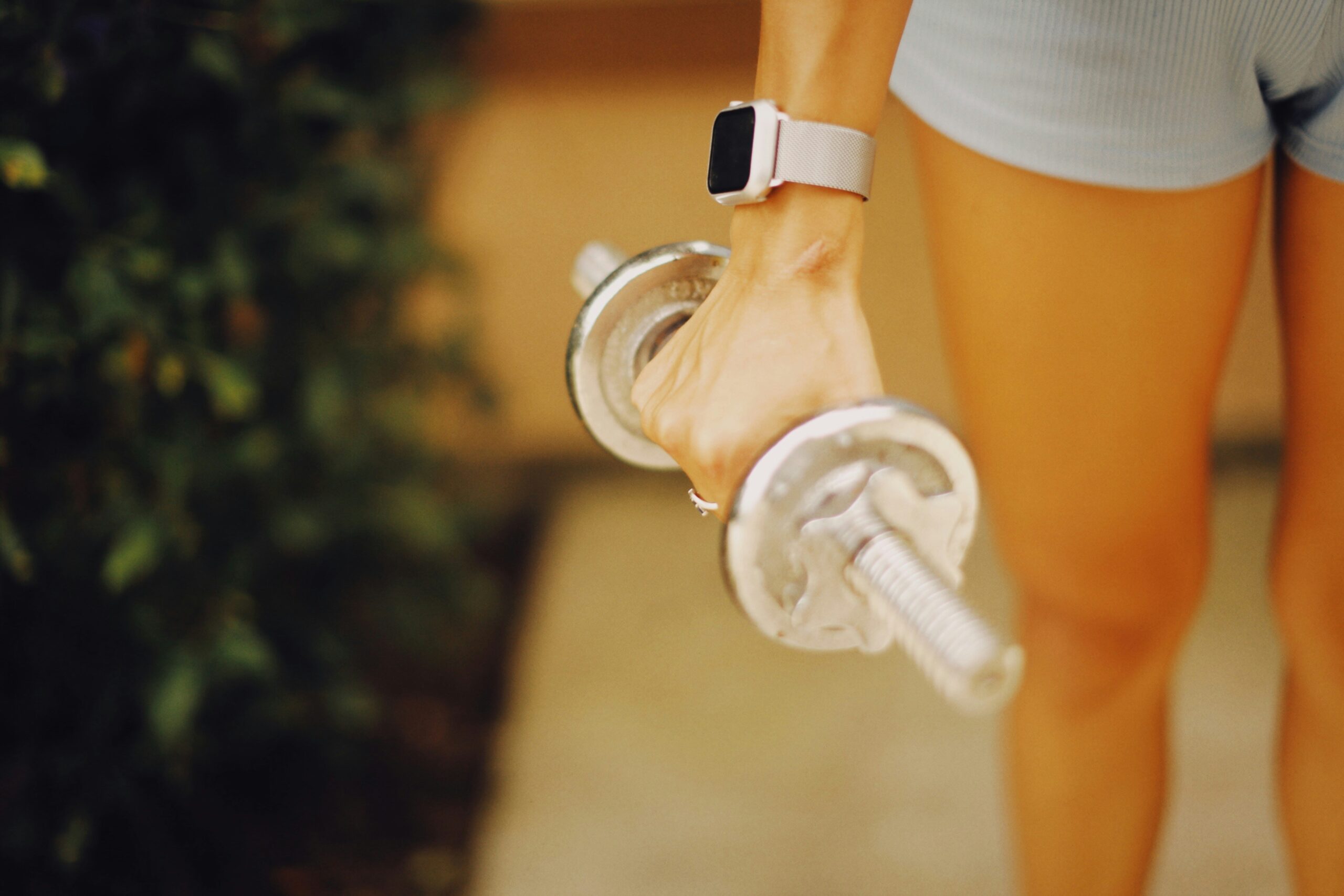

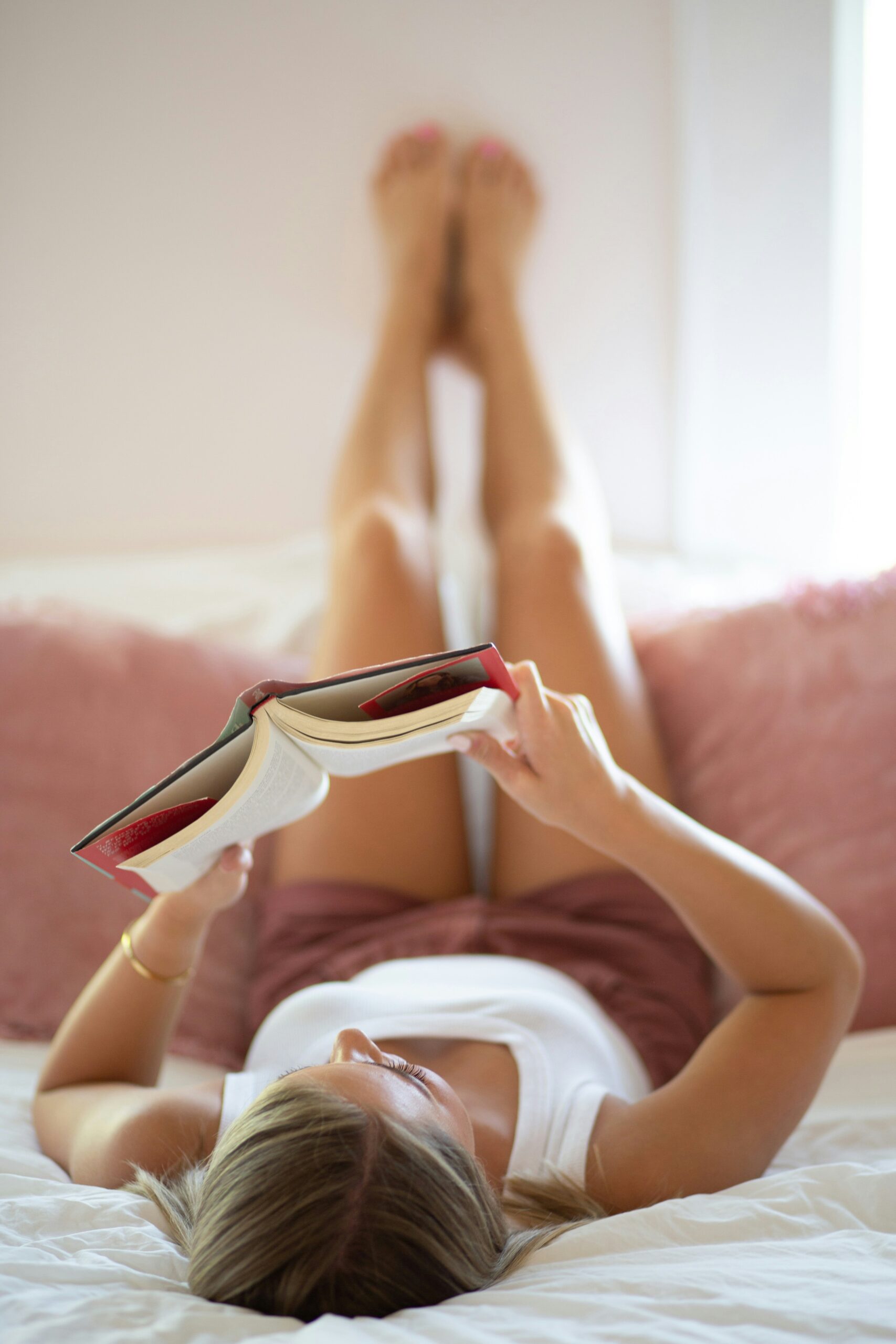
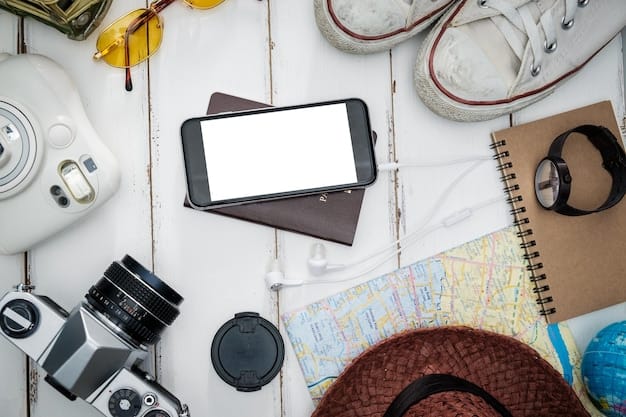
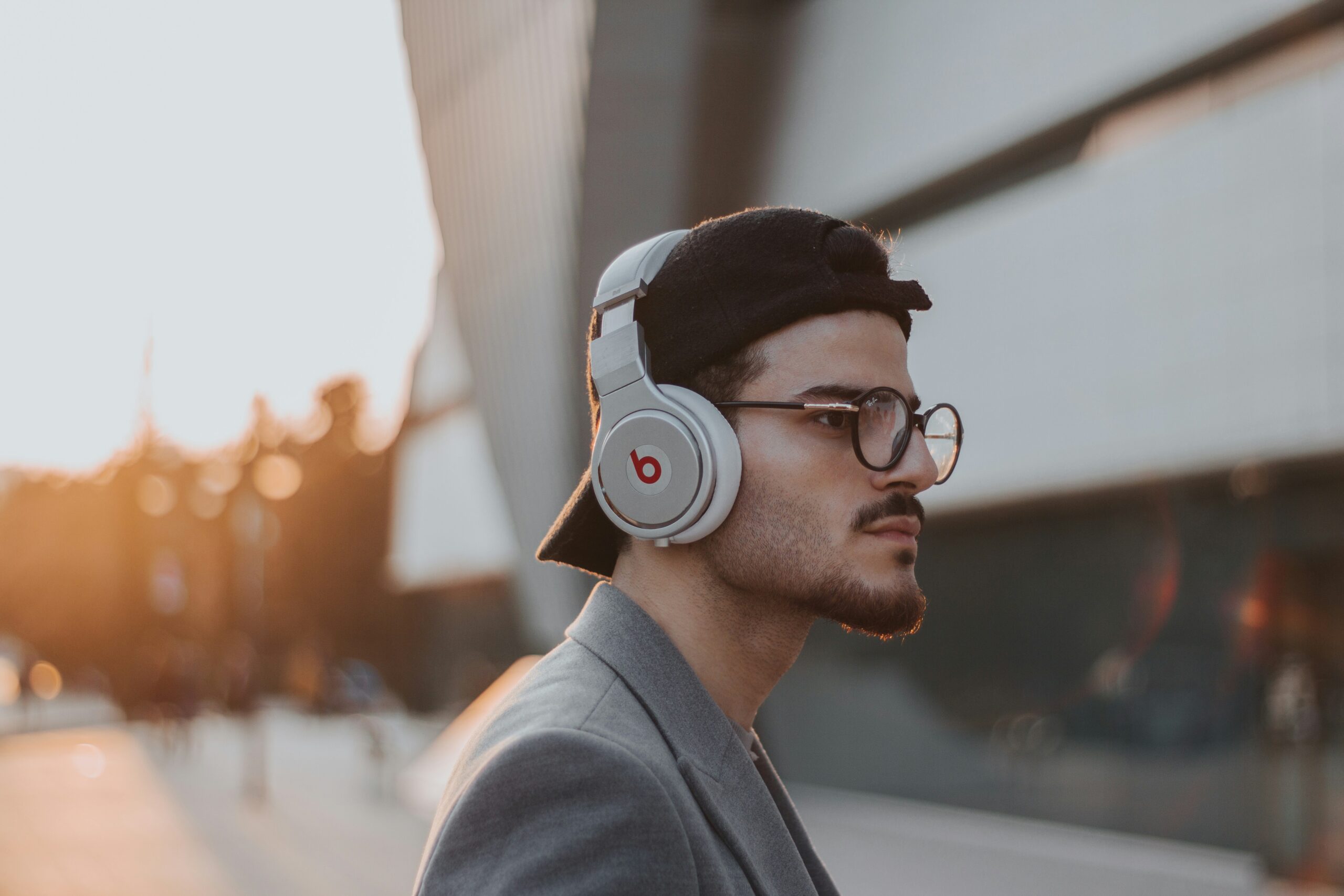

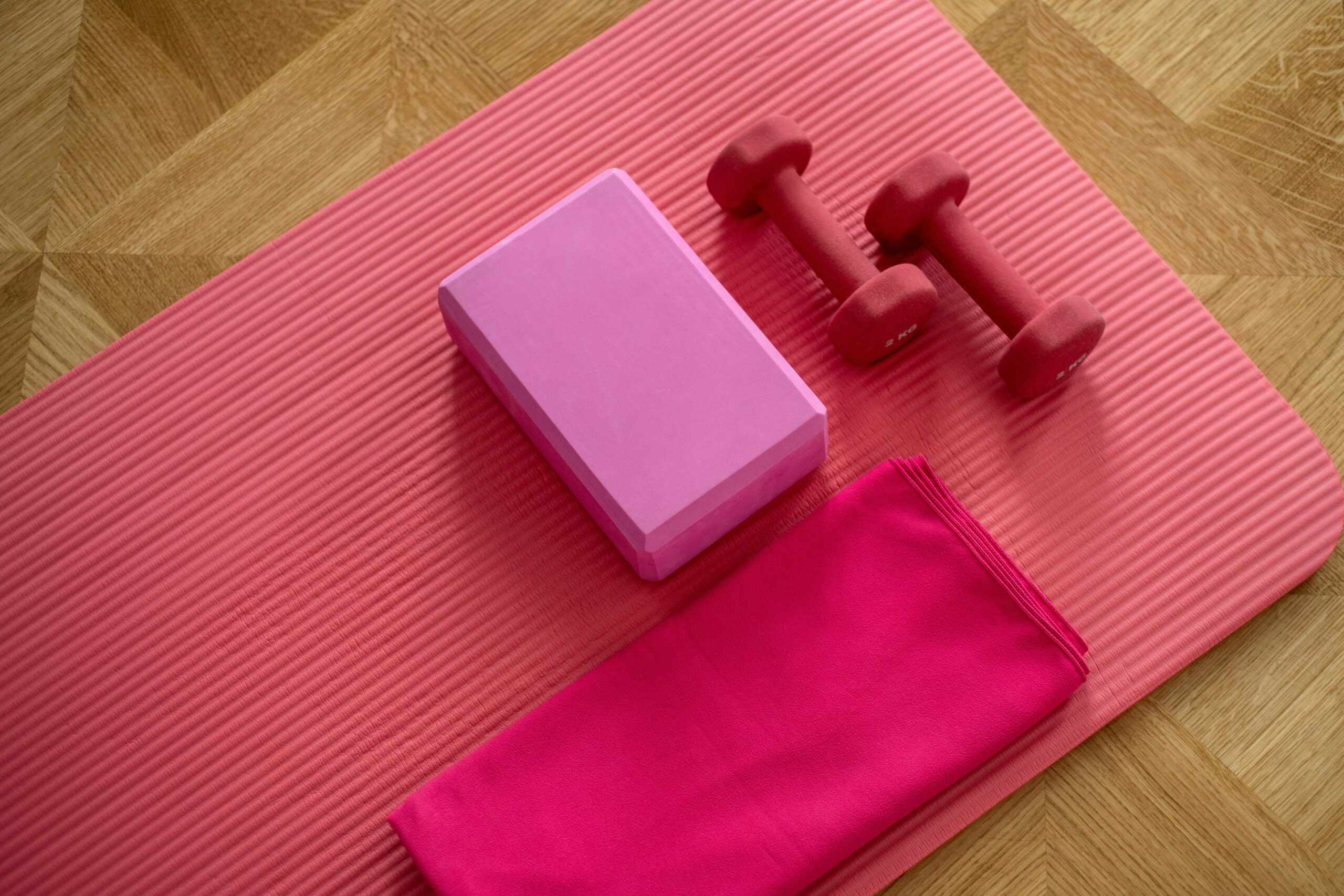
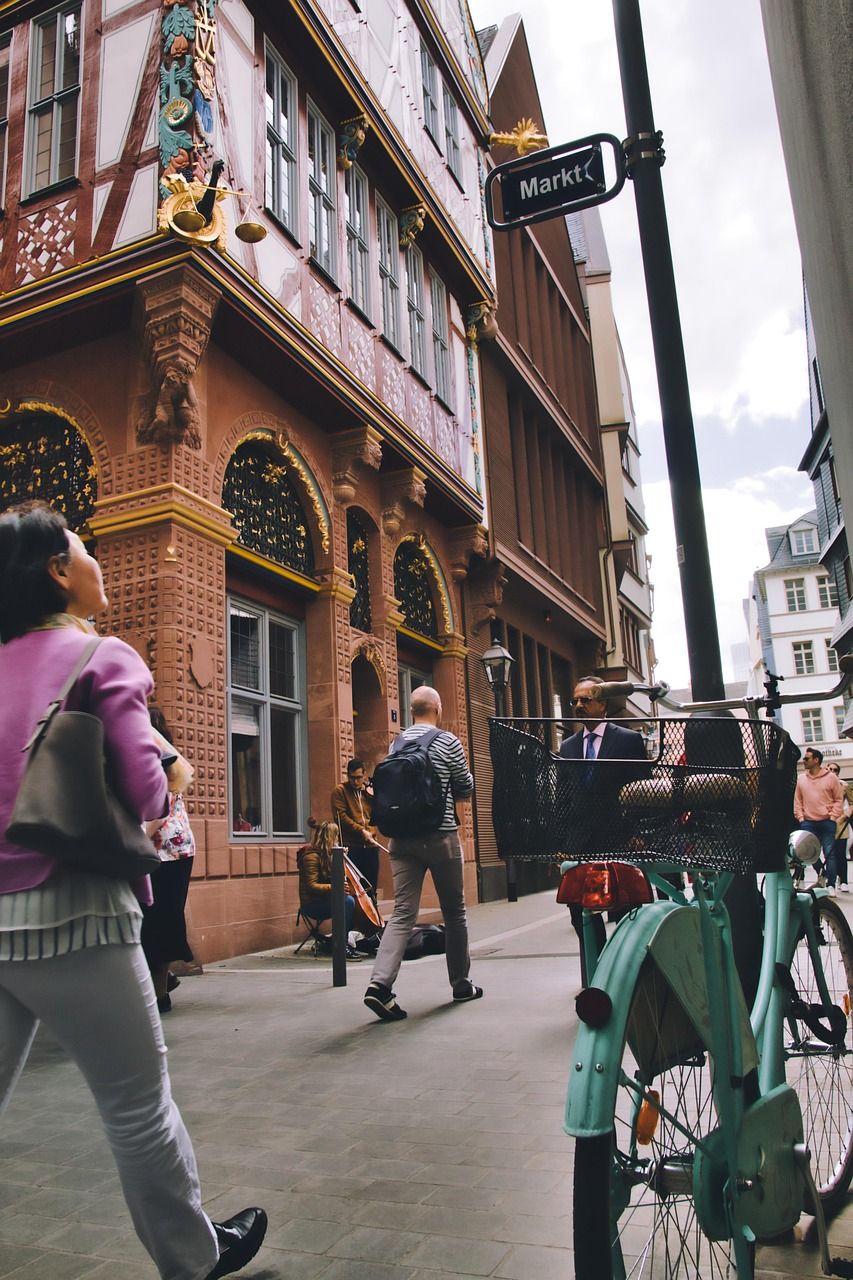

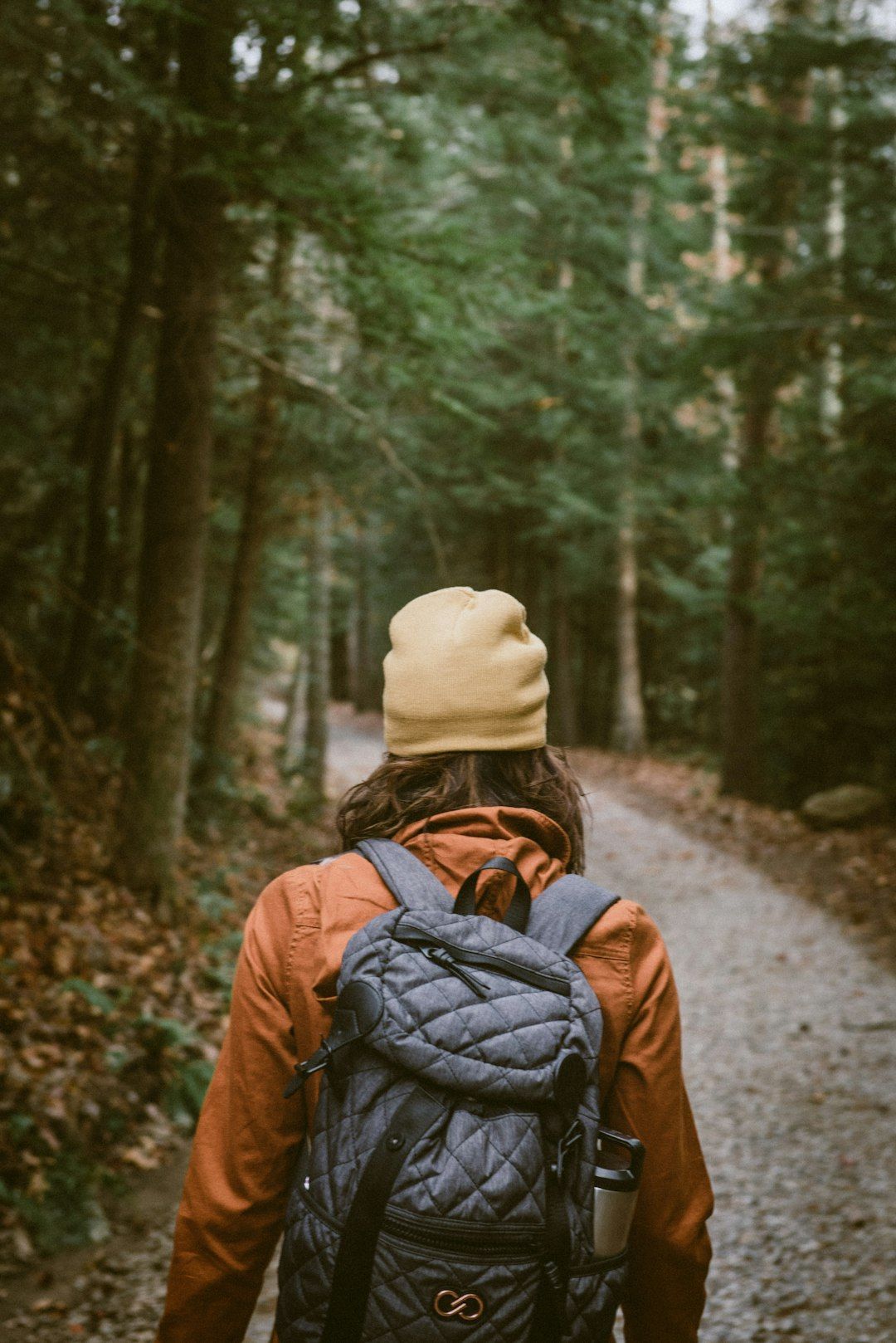

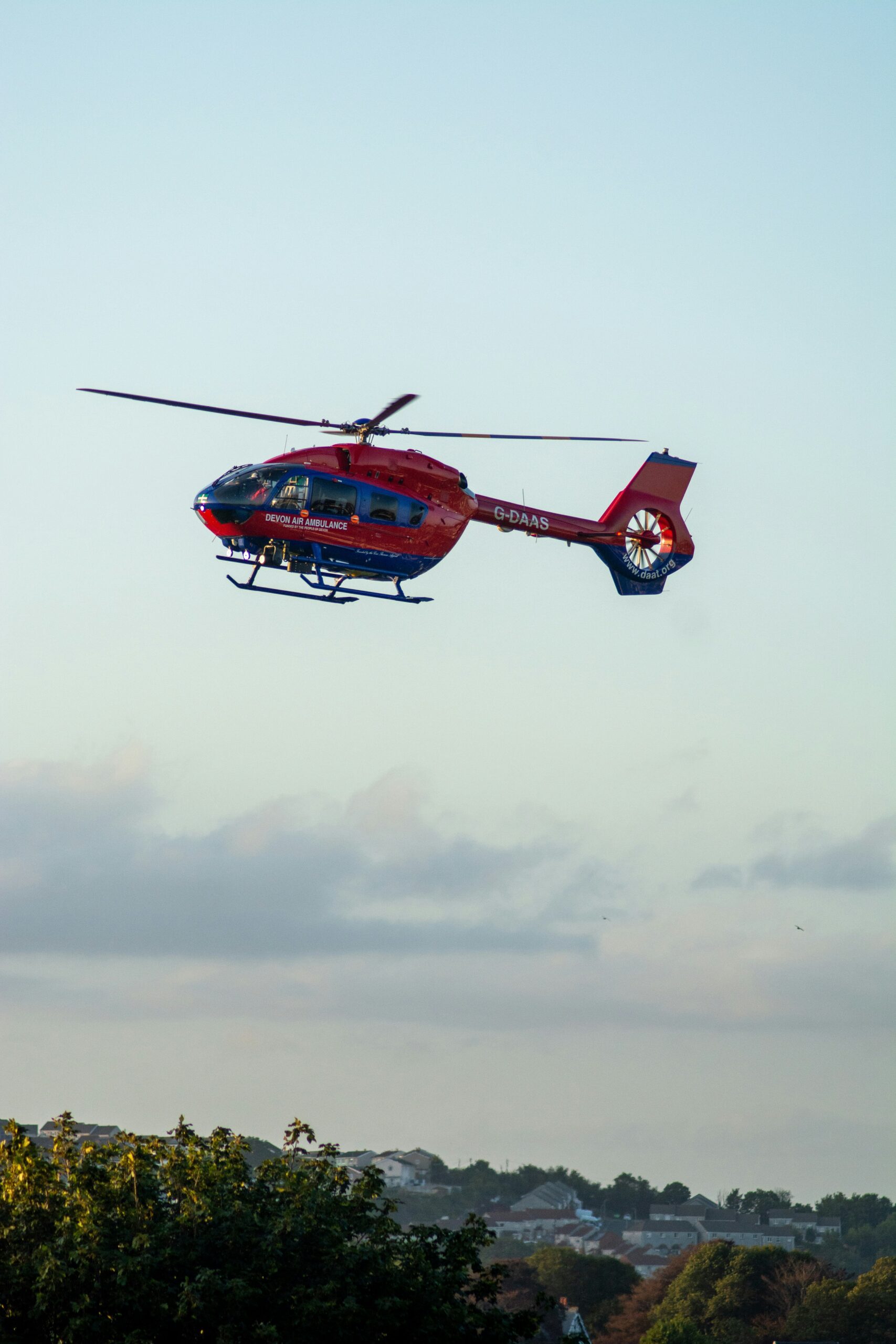
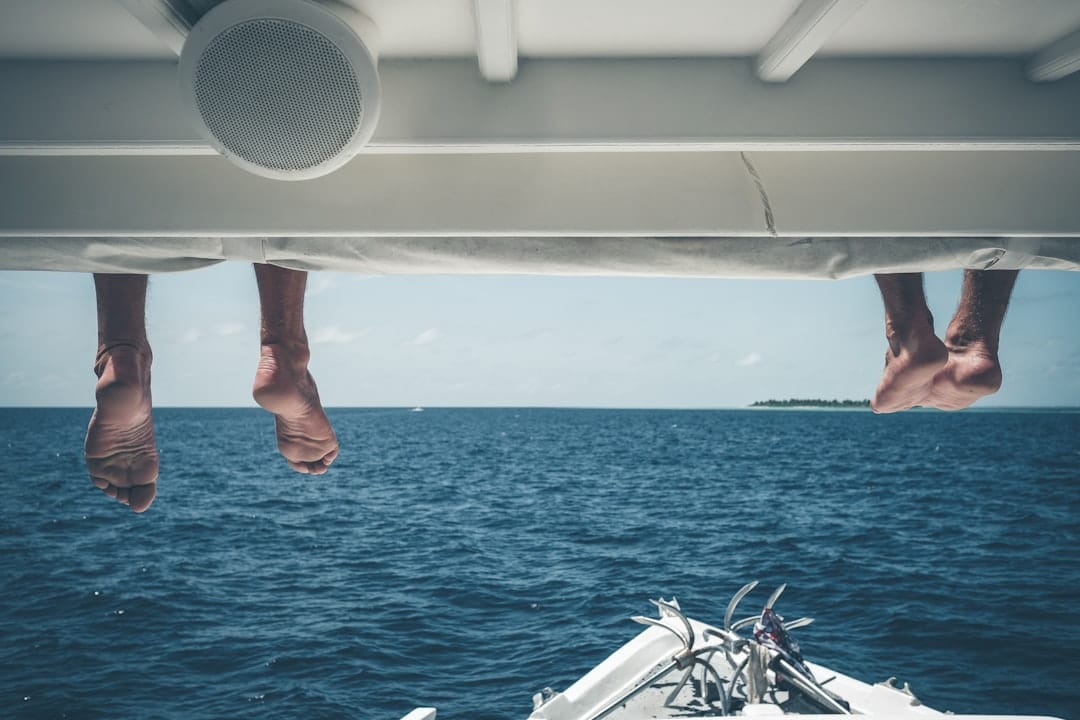
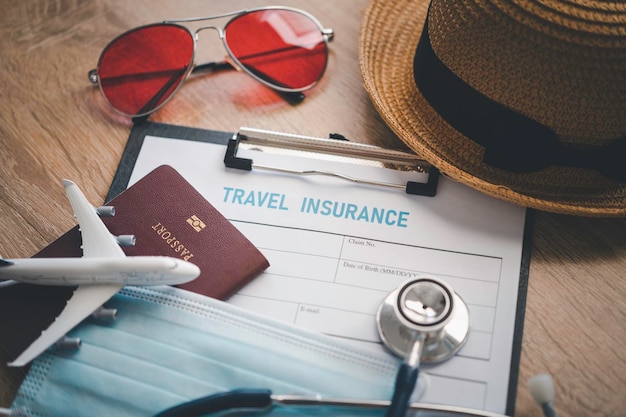
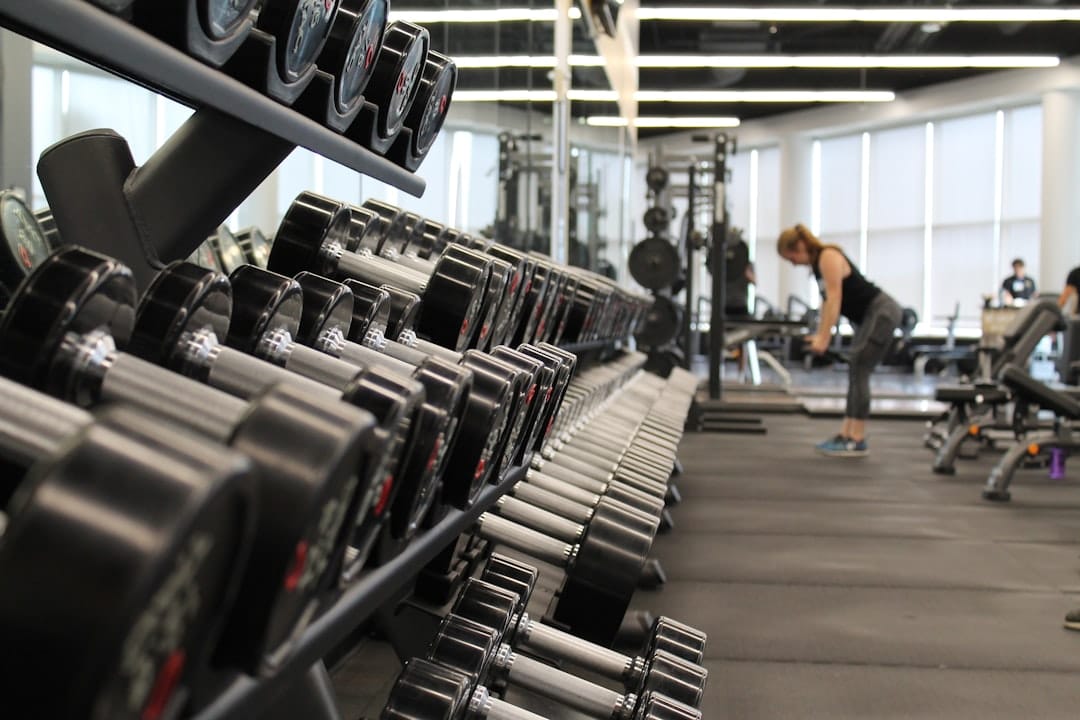


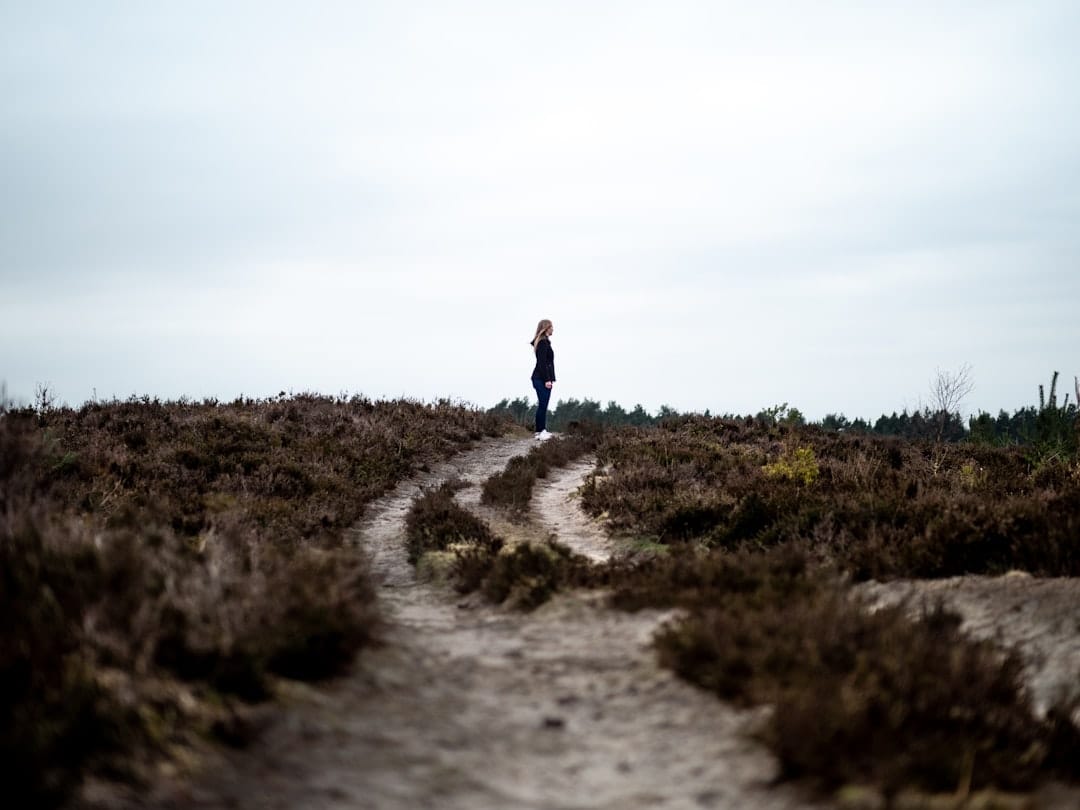



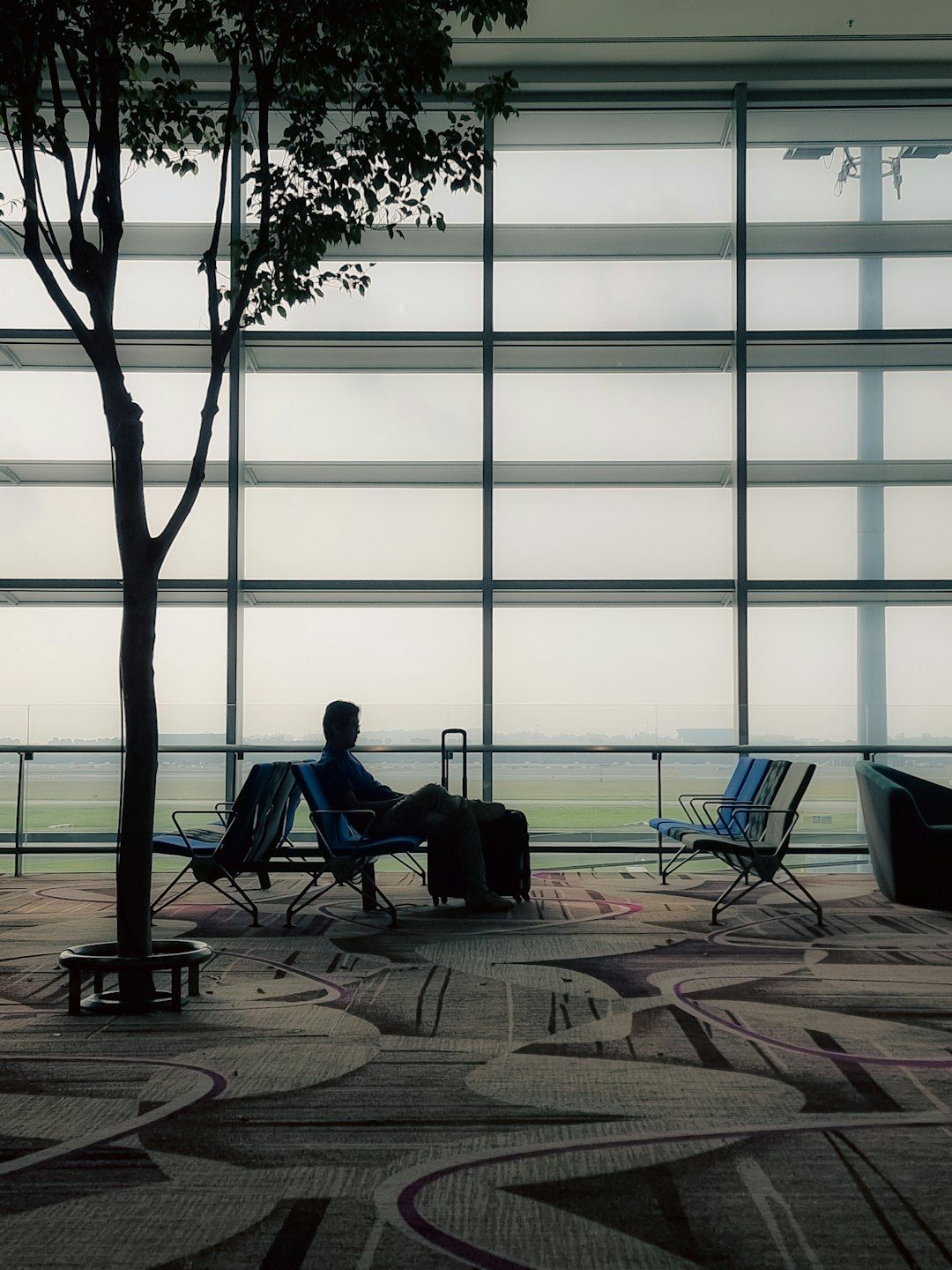

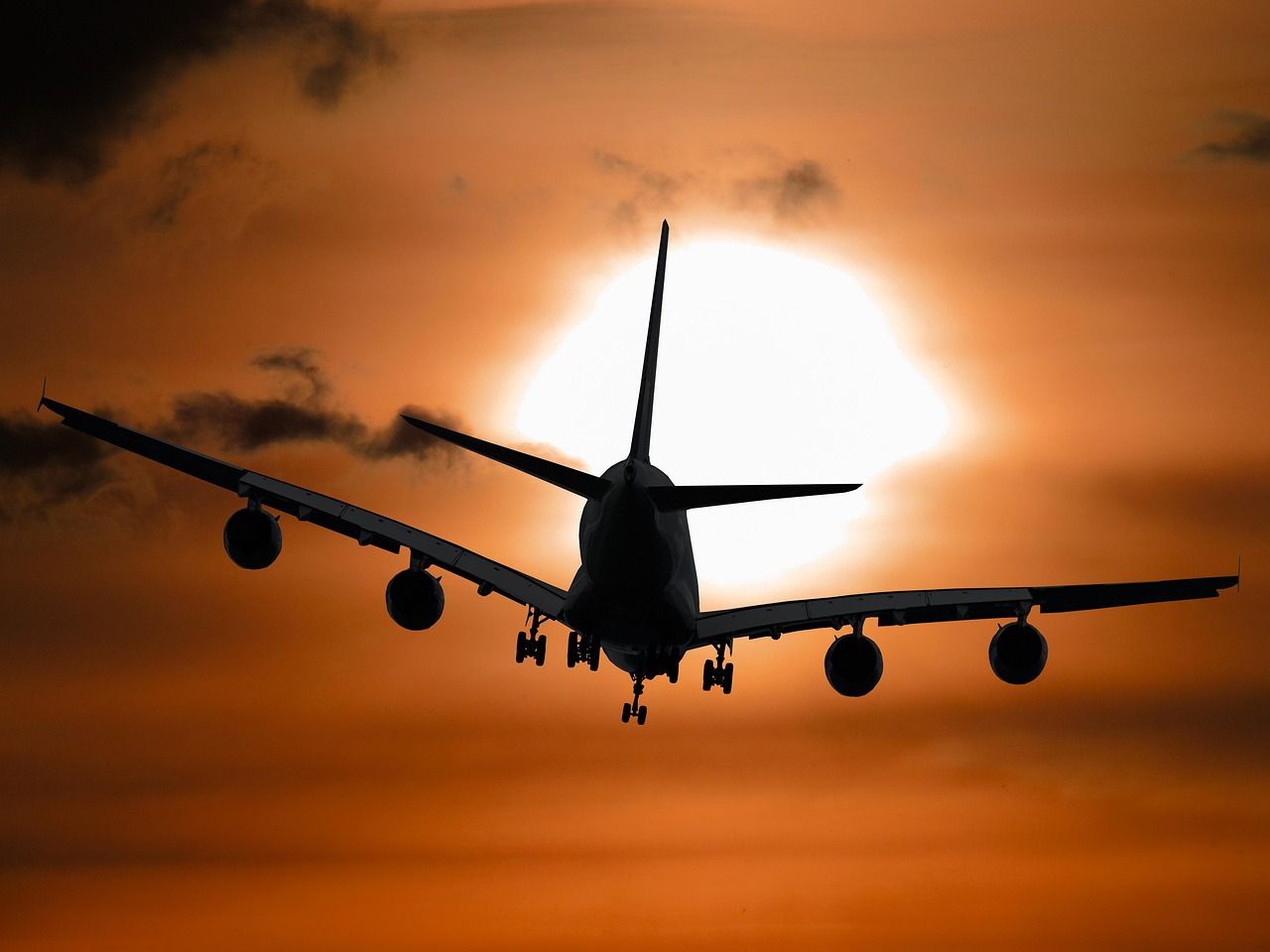

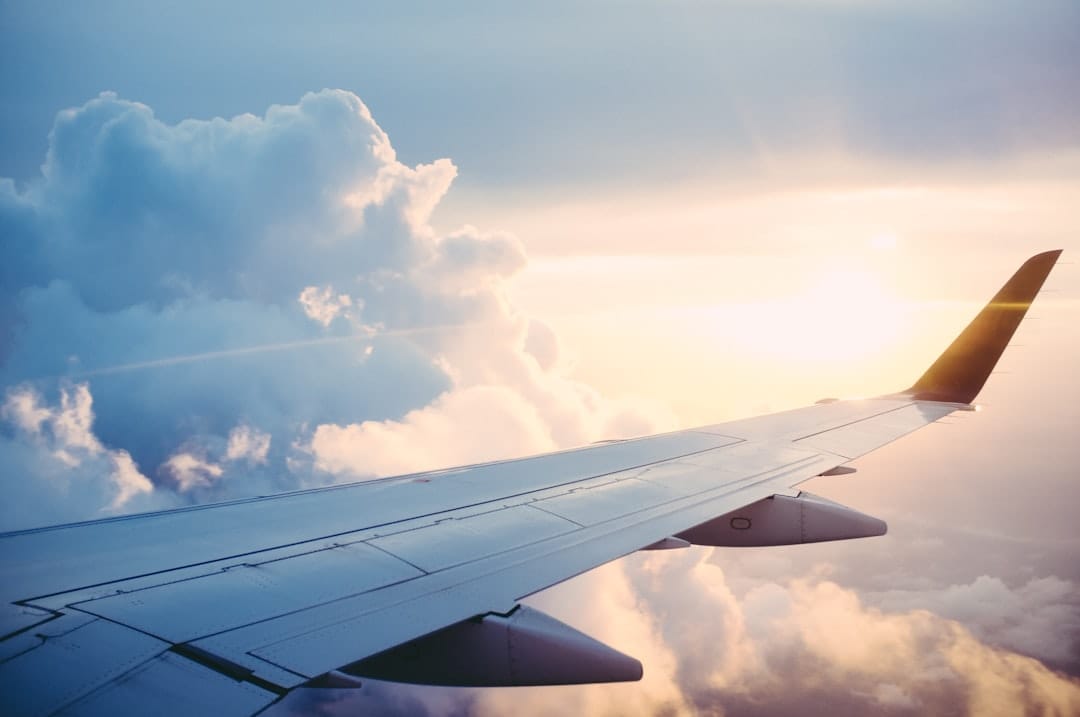
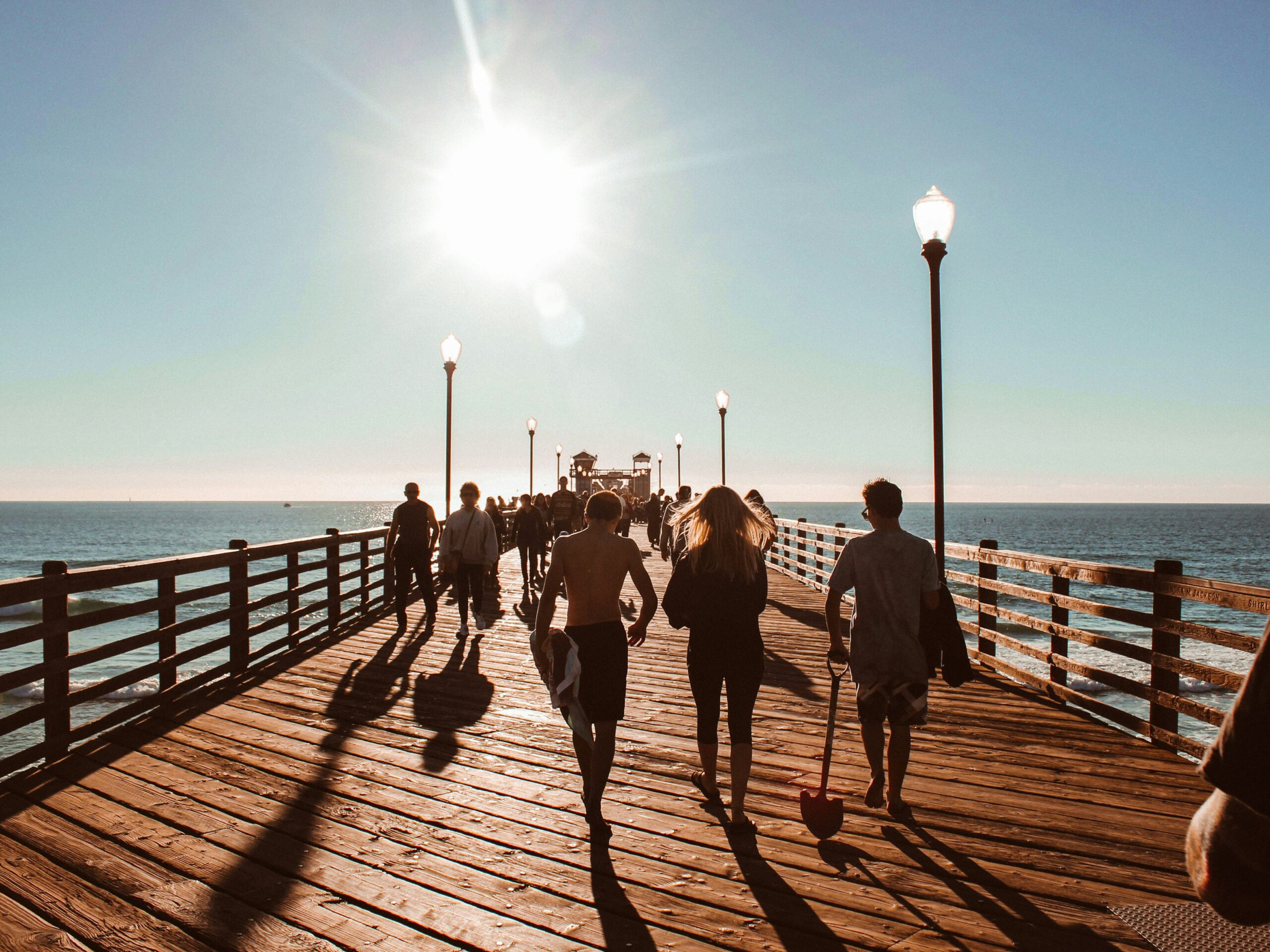
Leave a Reply